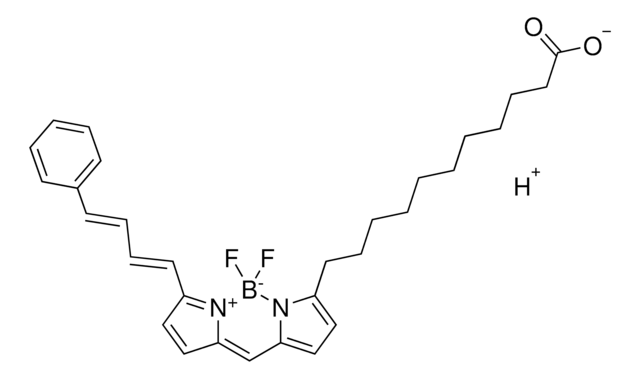SML0521
ML 210
≥98% (HPLC)
Synonym(s):
CID 49766530, ML-210, [4-[Bis(4-chlorophenyl)methyl]piperazin-1-yl]-(5-methyl-4-nitro-1,2-oxazol-3-yl)methanone
About This Item
Recommended Products
Quality Level
Assay
≥98% (HPLC)
form
powder
color
white to beige
storage temp.
2-8°C
SMILES string
Cc1onc(C(=O)N2CCN(CC2)C(c3ccc(Cl)cc3)c4ccc(Cl)cc4)c1[N+]([O-])=O
InChI
1S/C22H20Cl2N4O4/c1-14-20(28(30)31)19(25-32-14)22(29)27-12-10-26(11-13-27)21(15-2-6-17(23)7-3-15)16-4-8-18(24)9-5-16/h2-9,21H,10-13H2,1H3
InChI key
VIBHJPDPEVVDTB-UHFFFAOYSA-N
Application
Biochem/physiol Actions
Signal Word
Warning
Hazard Statements
Precautionary Statements
Hazard Classifications
Acute Tox. 4 Oral
Storage Class Code
11 - Combustible Solids
WGK
WGK 3
Flash Point(F)
Not applicable
Flash Point(C)
Not applicable
Certificates of Analysis (COA)
Search for Certificates of Analysis (COA) by entering the products Lot/Batch Number. Lot and Batch Numbers can be found on a product’s label following the words ‘Lot’ or ‘Batch’.
Already Own This Product?
Find documentation for the products that you have recently purchased in the Document Library.
Our team of scientists has experience in all areas of research including Life Science, Material Science, Chemical Synthesis, Chromatography, Analytical and many others.
Contact Technical Service









